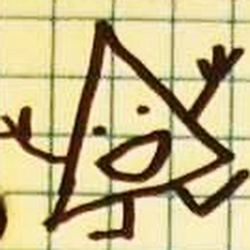2012-03-13
[public] 647K views, 8.78K likes, 196 dislikes audio only
A follow-up, with examples of numbers that are infinite and non-repeating but don't contain all combinations of digits: /youtube/video/8PUJvAlD64k
Happy Pi Day! Also see: Pi is (still) Wrong: /youtube/video/jG7vhMMXagQ
Pi in Binary Hand Dance: /youtube/video/OCYZTg3jahU
Special thanks to Toby (or not Toby) for playing Dog Hamlet.
This cool website lets you search the first 200,000,000 digits of Pi. See if your phone number or encoded name is in there! http://www.angio.net/pi/piquery
Seven Sonnets:
Are Shakespeare's plays encoded within Pi?
The truth is: we don't know, but we suspect
They're somewhere in those digits. And now I
Will show why we don't know if we're correct.
You see, we think the digits do behave
As if they were a random sequence, and
So many mathematicians tried to brave
This question, but we still don't understand.
Pi isn't random: each digit must be
Exactly what the definition states.
It's pseudo-random, far as we can see,
But it's the subject of intense debates.
Now I'll explain, with this parameter:
It's all in iambic pentameter.
You may have heard of this scenario:
A thousand monkeys type at keyboards 'till
They write the works of Shakespeare. Even though,
In one life it's a task they can't fulfill.
If you allow their kids to carry on,
All through the generations working hard,
They will evolve before they come upon
A single sonnet written by the Bard.
But still, the theory's sound! And it is true
That with a random and infinite set
Of letters, that eventu-ally you
Will find whatever words you want to get.
However, on this thing you can depend:
Before you do, the universe will end.
Pi is a number, and that's why I can
Completely guarantee no part will be
9-1-3-7-5-2-2-8-ten
4-7-9-H-A-M-L-E-T.
You'd have to make up something, like a code
Where zero-one is A, Oh-three is C,
Or you could also choose some other mode,
Oh-2 could be "to be or not to be."
But let's go with this system, where a Y
Is 2-5, O's one five, and R's eighteen,
And next comes zero 9 which is an I,
Oh-three, eleven. Yorick's name is seen!
Does Pi say anything? How does it go?
1-4-1-5. I guess the answer's "no."
If you desire to search Pi for a thing
Like Hamlet, as if you'd 'discover' it,
Without a copy used for referencing,
You wouldn't know if you'd recovered it.
In fact, it's almost certain, so beware:
Before you get to Hamlet, if you slog
Through all the digits, you'll find versions where
There's just one thing changed: Hamlet is a dog.
Dog Hamlet is so awesome and he goes
On infinitely many adventures.
In this infinite space everyone knows
Dog Hamlet's king. Sometimes he has dentures.
Unless Pi isn't normal. I'll admit:
Pi might not have a single Dog Hamlet.
A normal number is a number where,
If you take any pattern of length Z
You'll definitely find the pattern there,
And others that length, with' same frequency.
Length 1 would just be every digit, so
All digits happen infinity times.
And all two-digit numbers also go
In there somewhere. If you list all the primes,
You get the Copeland-Erdos constant, which
Is one of few known normal numbers. Or
Take every number in order and stitch
Them all together. And we know there's more.
Most numbers must be of the normal kind,
But somehow they are hard for us to find.
We think that Pi is normal. Also e
And square root 2 and other stuff like that.
We don't know how to prove that they must be,
That Pi contains Macbeth where he's a cat.
If you've got every combination of
Digits of every length, that will include
A Romeo and Juliet in love
Who meet in time and live and end the feud.
And since the strings of numbers must occur
With equal frequency to other strings
Of the same length, it don't matter whether
You choose this code or other permutings.
Perhaps somewhere Dog Hamlet and Catbeth
Are chillin', bustin' ghosts, avoiding death.
There's simple open problems about pi,
Like whether every digit, oh through nine,
Keeps happening. We can't figure out why
6 shouldn't stop appearing, down the line.
It seems ridiculous, to think that 2
Occurs finitely many times. I fear,
That without proof, we can't say it's not true.
Alas, poor Yorick may never appear.
But the exciting thing is that I think
These problems will be solved before too long.
And then this video will really stink
Because all this not-knowing will be wrong.
Don't worry; I look forward to its fall.
'Till then, a happy Pi Day to you all.
My personal website, which you might like: http://vihart.com

